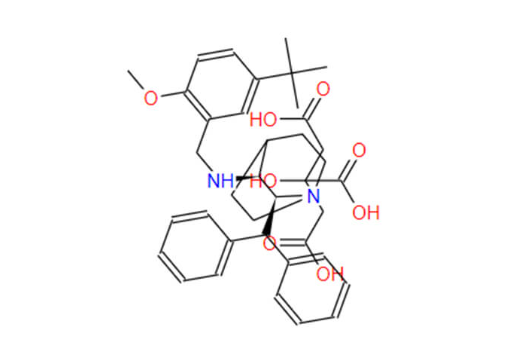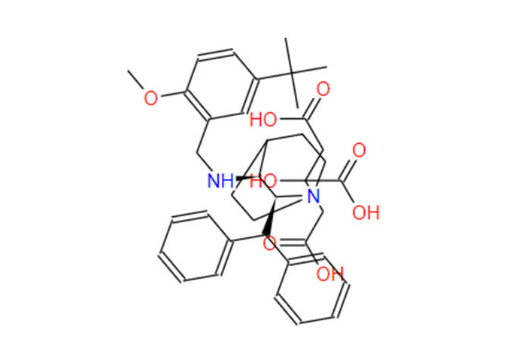Due to the fact that it is an essential active pharmaceutical ingredient, maropitant citrate is utilized in a wide variety of capacities within the field of veterinary medicine. Because it is a neurokinin-1 receptor antagonist, it possesses a set of characteristics that are unique to it, which makes it advantageous for a wide range of therapeutic applications. We will talk about some of the most significant ways that Maropitant citrate is beneficial to companion animals, as well as the advancements that have been made in the field of veterinary science, in this article.
This is Deficiency in Motion.
Kinetosis, which is also known as motion sickness, is a condition that can affect a wide variety of animals, particularly dogs. The underlying cause of the condition is a mismatch between visual cues and balance signals, which is frequently brought on by traveling by automobile, boat, or airplane. This mismatch is the root cause of the condition. It is possible to achieve effective prevention and reduction of motion-induced sickness in dogs by administering drugs containing maropitant citrate as a preventative measure. This can be accomplished by administering the drugs. Numerous studies have shown that Maropitant citrate are effective in treating even the most severe cases of motion-induced illness in canines. This benefit has been demonstrated by the effectiveness of the medication. The body experiences additional stress as a result of repeated vomiting, which also slows down the recovery process and adds to the discomfort that is already associated with the condition. Due to the presence of this substance, there is an increased likelihood of complications arising from dehydration or the tearing of surgical sites that are in the process of healing. As the science that underpinned the maropitant manufacturer's anti-nausea action became more transparent, the maropitant manufacturer emerged as a game-changing intervention for post-surgical pets.
Furthermore, this makes it easier to recover without any complications and to return to normal functions in a more brief amount of time.
Nausea that is brought on by chemotherapy-induced nauseaDespite the fact that chemotherapy is administered to people more frequently than it is to animals, it may be beneficial for certain animals that are afflicted with cancer. Canines that are sensitive to these contaminants are especially susceptible to experiencing unpleasant side effects such as nausea and vomiting. On the other hand, these side effects are still a genuine possibility. The fact that it appears to be capable of reducing adverse effects on the gastrointestinal tract would make it possible to administer anti-cancer medications in a manner that is more consistent and would even allow for the administration of full doses. In the field of veterinary oncology, this has the potential to be a game-changer in terms of the expansion of options that are available.
a condition affecting the kidneys nausea
Alterations in the chemical composition of the body are linked to diseases of the kidneys and chronic renal insufficiency. These same alterations frequently cause disruptions in the digestive tract, which can lead to a variety of health complications. These symptoms are linked to the retention of waste, changes in the microflora in the gut, and fluctuations in the levels of metabolites. There is some evidence to suggest that the administration of Maropitant citrate in conjunction with conventional kidney care may have the potential to yield potentially beneficial effects. It is possible that in the future, controlled studies will be carried out in order to determine whether or not it helps stabilize the stomach by inhibiting the activity of selective NK1 receptors during renal etiologies of vomiting and diarrhea in pets. Patients who are suffering from renal disease could potentially gain advantages from any reduction in medication non-compliance that is brought on by nausea. There is a wide range of local and systemic mechanisms that can lead to emesis. Some of these mechanisms include, but are not limited to, dietary indiscretions, inflammatory bowel disease, gastric ulcers, the presence of infections, and other conditions. Managing the symptoms of frequent vomiting becomes a top priority when considering the context of optimizing clinical outcomes.
During episodes of non-specific gastrointestinal vomiting in small animals, specialists have investigated the role that maropitant supplier citrates play in the treatment of the condition. Even though it will not necessarily cure the underlying enteric disorders, there is emerging evidence that suggests it may be useful for symptomatically stopping acute vomiting phases. This is despite the fact that it will not necessarily cure the disorders.
It is the pancreatitis.
Pantaritis is an inflammation of the pancreas, which is an organ that plays a significant role in the production of enzymes for the digestion of food and the regulation of blood sugar levels. Pancreatitis can be caused by a number of different factors. In dogs, the clinical manifestations that are considered to be associated with pro-emetic factors are typically characterized by hyporexia and vomiting. Neither the acute nor the chronic forms of the condition are exempt from this statement. As a result of its ability to selectively antagonize NK1 receptors, which play a crucial role in the regulation of the upper gastrointestinal tract, it has the potential to be used as a potential adjunct during inflammatory pancreatic episodes in dogs. There is still a requirement for a sufficient amount of research.
For reasons related to pharmacology and toxicology, vomiting
Whether it is the result of unavoidable exposure to toxic household chemicals, poisonous mushrooms or plants, or an overdose of specific therapeutic drugs, the inability to avoid vomiting can put an animal's life in jeopardy. This is true regardless of the cause of the vomiting. According to the growing body of research that provides evidence to support this hypothesis, maropitant citrate may prove useful against vomiting caused by a variety of toxins or medications that are able to trigger emesis through substance P-mediated pathways. This hypothesis is supported by the discovery that maropitant citrate may be useful. It offers an additional choice in addition to the utilization of straightforward anti-emetics for the purpose of performing emergency countermeasures against nausea and retching that have been induced.
Infectious diseases brought on by parasites
There is a possibility that certain parasites that are known to infect the gastrointestinal tract of pets can occasionally cause vomiting that is both severe and persistent. This is something that can possibly happen. Another example of a situation in which prolonged vomiting can make an already serious condition even more severe in dogs that are affected is the visceral larval migrans that can occur as a result of the ingestion of toxocaral larvae. This is an example of a scenario in which the condition can become even more severe. Maropitant citrates appear to have the potential to prevent vomiting that is caused by intestinal parasites such as hookworms or migrating larvae, which are known to cause the release of serotonin and substance P molecules. This is based on preliminary findings, which indicate that Maropitant citrates have the potential to prevent vomiting. In conclusion, the maropitant supplier has already demonstrated its versatility against vomiting across a wide variety of applications in the veterinary field. Due to the fact that it is a selective NK1 receptor antagonist, this is the case. Its one-of-a-kind mechanism addresses one of the final common pathways that is activated in a number of disease states. This pathway is activated in a majority of disease states.


